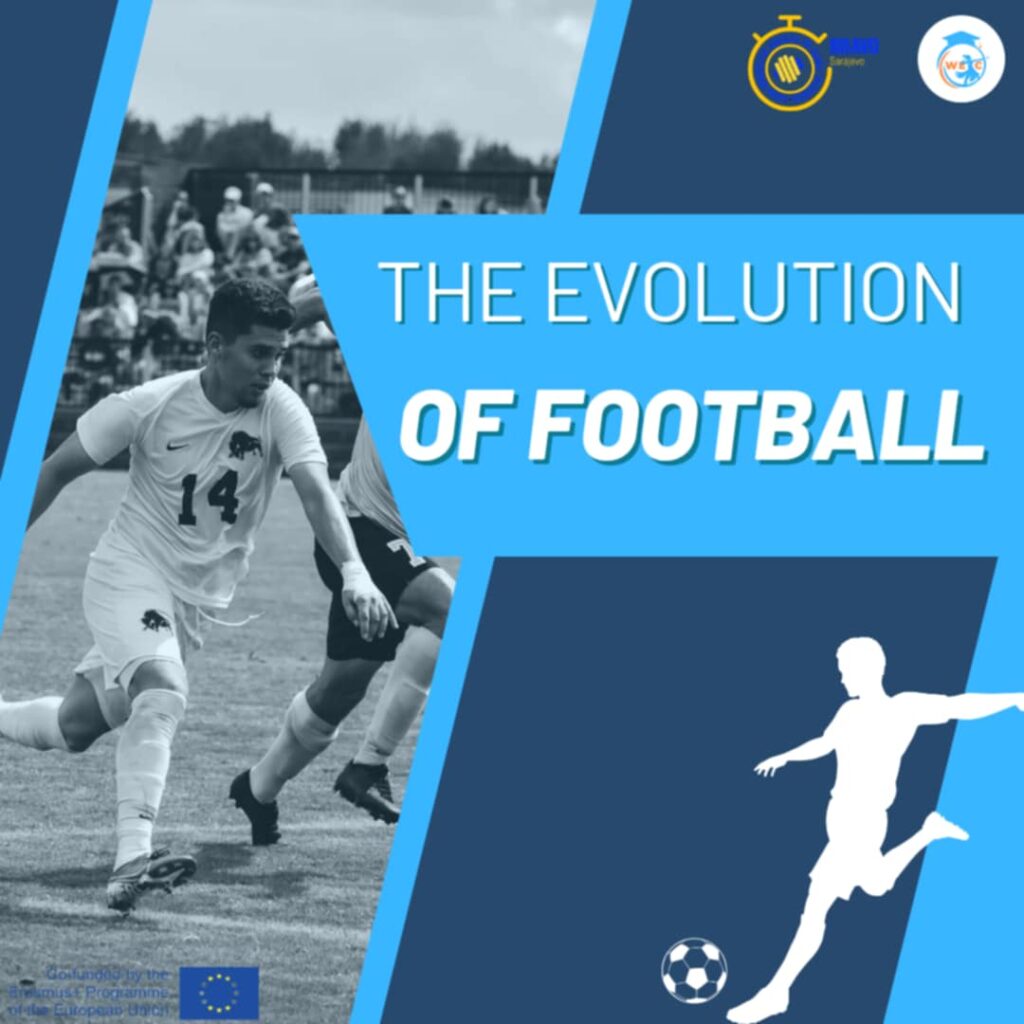
Football has evolved from its beginnings in ancient cultures to become the world’s most popular sport. Emerging in England in the 19th century and spreading globally with the creation of FIFA, football has seen key innovations that have transformed the game.
As football gained popularity in England, the first football associations established rules and organized competitions. By the end of the 19th century, the sport had spread throughout Europe and South America. The creation of FIFA in 1904 was a milestone in global expansion. Key innovations included the introduction of the offside rule in 1866, the creation of the modern leather ball in 1872, and the standardization of field dimensions. These changes laid the foundations for modern football.
Historically limited or not allowed, teams can now make up to five substitutions per match, a change adopted during the COVID-19 pandemic. Initially, any forward pass was offside. Now, at least two defenders must be between the attacker and the goal when the ball is played, making the game more dynamic and high-scoring.
The introduction of Video Assistant Referee (VAR) helps referees make critical decisions on goals, penalties, and red cards, ensuring greater fairness and accuracy. Modern teams use GPS devices and heart rate monitors to track player performance and fitness, allowing for optimized training programs. High-speed cameras provide instant decisions on whether the ball has crossed the goal line, removing any doubtfulness. Social media and digital platforms have transformed fan engagement, with live streaming and interactive apps enhancing the experience.
The Dutch “total football” revolution in the 1970s emphasized fluidity and position interchange, influencing modern tactics. Today’s game emphasizes high pressing and possession-based play, with teams like Barcelona and Manchester City exemplifying this style. Players are now more versatile and specialized, with full-backs contributing to both defense and attack, and midfielders combining defensive and creative roles.
Football has become a multi-billion-dollar industry, with lucrative broadcasting and sponsorship deals making leagues like the English Premier League extremely wealthy. The globalization of football has seen a diverse talent pool, with players from around the world competing in top leagues.
The TSG Sport Project by BRAVO BiH emphasizes the transformative power of football in fostering social inclusion and community development. This project leverages the popularity and unifying nature of football to address critical societal issues such as gender equality and the inclusion of ethnic and religious minorities. By incorporating football into their initiatives, BRAVO BiH aims to create a cohesive and inclusive society, harnessing the sport’s ability to bring people together from diverse backgrounds.
Football today is very different from the past, with changes in rules, technology, tactics and commercialization making the game more dynamic, fair, and engaging. As the sport continues to evolve, these trends will shape the future of football. Through projects like BRAVO BiH’s TSG Sport Project, football is not just a game but a catalyst for social change and community development.
MORE ABOUT THE PROJECT:
The TRADITIONAL SPORT AND GAMES project is a collaborative initiative involving partners from various countries and sectors dedicated to reviving and promoting traditional sports and games. The project aims to create a digital platform called “Revival of Traditional Sports and Games,” which will be accessible worldwide and provide free access to traditional sports and games content. The platform will include printed and electronic intellectual outputs, books, innovative teaching methods, and a mobile application/game that allows for content development.
Key outputs of the project include the development of a web-based digital platform, an inventory of traditional sports and games in Europe, research and documentation of oral stories about traditional sports and games, an educational mobile game/application for teaching traditional sports and games digitally, video promotion films, an online map showcasing traditional sports and games events and organizations worldwide, a digital mentor/trainer module, and a toolkit for the revival of traditional sports and games.
The toolkit will cover various topics such as career development, youth support, athlete and trainer skills, cooperation with universities and federations, academic integration of traditional sports and games, and inclusion in school curriculums.
Nations share a rich tapestry of history and culture, with traditional sports and games being fundamental threads in that tapestry. However, as globalization and technological advancements sweep across the globe, these cherished traditions are at risk of fading into obscurity, overshadowed by modern sports and entertainment.
Recognizing the impending danger to such heritage, the World Ethnosport Confederation (WEC) steps forward, committed to preserving, promoting, and transmitting these age-old traditions to future generations.
The project underscores the dire need for international collaboration to bring these traditional activities to the limelight, emphasizing the dual imperatives of both preservation and adaptation, especially in a digital age.
With the backdrop of the Covid-19 pandemic further highlighting the urgency of digital transitions, this initiative aims not only to keep the traditions alive but also to integrate them into contemporary settings, ensuring they remain relevant and accessible for young individuals today.
